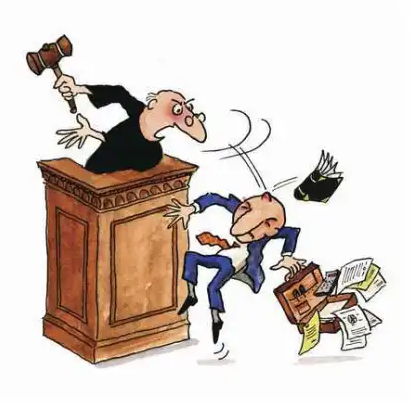The Court of First Instance and Education of Irún (Spain) has sentenced a lawyer for making insulting statements against a judge on television and on social networks, which he was also in charge of disseminating to a wider audience.
The magistrate filed a lawsuit against the lawyer asking for the removal of 3 television recordings which had been uploaded to his YouTube channel and social networks, believing that these videos were an unlawful interference in his right to honor and freedom. self image. Images of him have been included in the edition of the audiovisual material.
In the documents, the lawyer made, among other things, the following comments: “
- “The vast majority of people, upon learning of her objectively and truthfully disclosed actions, also seem to think that she has continually prevaricated, carried out an arbitrary exercise of her judicial function, engaged in criminal plots, and maliciously delayed the handling of her cases. “
- “The file of complaints against the judge is in the public domain and is precisely the main engine of the indignation of people who consider it an absolute shame”.
- “It is a true fact that the free opinion of the people is that the judge deliberately issued unjust decisions.”
In his response, the lawyer argued that “(…) all of his statements are true, and between the right to honor and freedom of expression, he understands that his statements meet the requirements implying the free exercise of freedom of expression, both in terms of public relevance for objective reasons and for subjective reasons”.
In its substantive analysis, the Court observes that “(…) the right to honor protects the good reputation of a person, protecting him from expressions or messages that make him diminish in the consideration of others by discrediting him, i.e. there is no obligation to bear the insult, nor abusive expressions and receiving them supposes, in any case, a violation of this right. It is therefore not tolerable to receive abusive expressions that disfigure a person”.
He adds that “(…) the inclusion of the name and photo presupposes an improper use of the actor’s right to the image itself by illegally spreading an image of the face taken from a photograph used on social networks, whose profiles are private and personal, where he does not appear with his full name and in no case is there any mention of his professional appearance, nor of his qualification as a Magistrate. Furthermore, he involves the plaintiff in an alleged plot to cover up pedophile politicians”.
It verifies that “(…) the defendant has not provided any element to demonstrate the truthfulness of his statements, limiting himself in his reply to emphasizing that each of his statements is absolutely true. From the foregoing it can be deduced that it is in no way possible to maintain that it is a question of a well-founded and legitimate censure against a specific judicial decision with respect to which one can disagree, nor in making public a definitive sentence that would have condemned a Magistrate for prevarication , but pure and simple to channel one’s dissent through defamation”.
In summary, the Court concludes that “(…) the diffusion was very significant, a diffusion that must be considered much greater on the basis of the transmission potential of television in a national program in prime time. With the data provided, the audience/dissemination of the defendant’s interventions is very consistent, and if we add to this the seriousness of the accusations that are addressed to the plaintiff, and the false information that is also transmitted, the accused is aware of the falsity of such information, the moral damage suffered by the plaintiff was very significant”.
In light of the above, the Tribunal decided to order the defendant to pay 60,000 euros in non-pecuniary damages to the judge, to remove the offending recordings from his social networks and to disseminate this judgment on them.
See judgment of the Court of First Instance and Education of Irún 111/2022.


